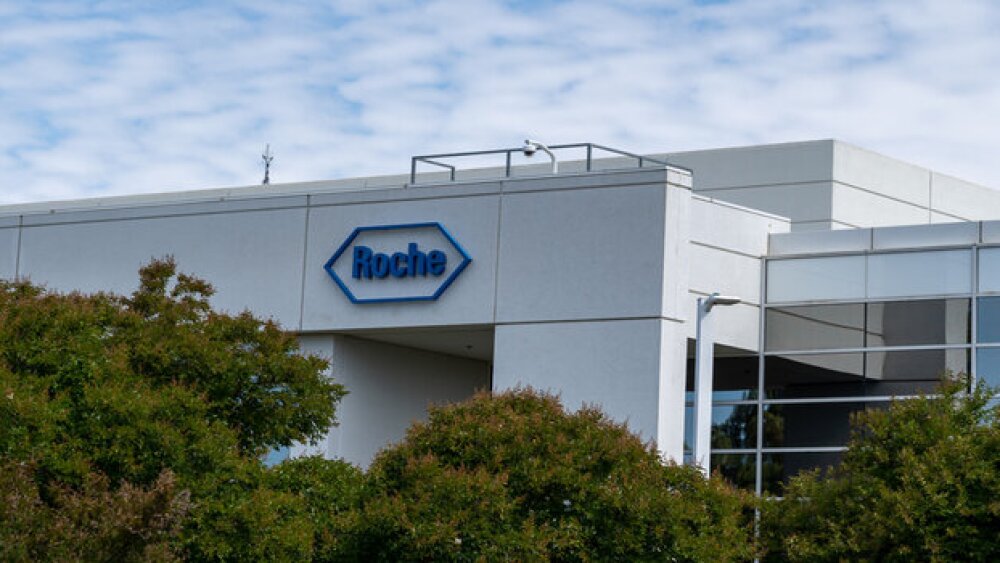Citing a pipeline review and “evolving” external factors, Roche has returned the potentially best-in-class camonsertib to Repare Therapeutics, which will continue to evaluate the asset in various tumor types.
Pictured: Roche Diagnostics headquarters in California/iStock, JHVEPhoto
Roche is returning the global development and commercialization rights to the investigational cancer asset camonsertib to Repare Therapeutics, the Cambridge, Mass. and Montreal-based oncology company announced Monday.
Repare in Monday’s announcement said that Roche is terminating the agreement “following a review of Roche’s pipeline and evolving external factors.” The contract termination will take effect on May 7, 2024.
The move comes just weeks after Roche paid $40 million in a clinical milestone payment after Repare had successfully dosed its first patient in the Phase II TAPISTRY study, designed to evaluate camonsertib in patients with unresectable, locally advanced or metastatic solid tumors carrying specific oncogenic mutations.
Repare CEO Lloyd Segal said in a statement that the company is “disappointed to end this collaboration” and that it appreciates Roche’s contributions to the development of camonsertib. The biotech will continue to advance the cancer asset in different tumor types.
Camonsertib is an investigational oral small molecule inhibitor of the Ataxia-Telangiectasia and Rad3-related protein kinase (ATR), which according to the company’s website is critical for the DNA’s response to damage. ATR can detect damaged DNA or faulty DNA replication and arrest the cell cycle. In cancer, ATR can boost cellular survival despite these stressors.
Roche bought in to the promise of camonsertib, which has best-in-class potential, in June 2022 for $125 million upfront and pledged up to $1.2 billion in potential milestones plus royalties. Before recently turning its back on the asset, Roche in October 2023 had also enrolled the first patient in the camonsertib-based group in the Phase Ib/II Morpheus Lung study, evaluating various immunotherapy combination regimens in metastatic non-small cell lung cancer.
Beyond the TAPISTRY and Morpheus studies, Repare is also evaluating camonsertib in the Phase I MYTHIC trial, which is testing its combination with the PKMYT1 inhibitor lunresertib in various tumor types and genotypes.
The biotech posted early data from MYTHIC in October 2023, demonstrating an overall response rate of 33.3% across all tumor types. The drug combo appeared to be most effective in heavily pretreated gynecologic cancers—such as endometrial, ovarian and cervical tumors—inducing a 50% response rate.
Joining camonsertib and lunresertib in Repare’s pipeline is the PLK4 inhibitor RP-1664 and the Polθ ATPase inhibitor RP-3467, both of which are in very early stages.
For Roche, the decision to ax camonsertib falls in line with its strategy of pruning its pipeline to weather its declining COVID-19 sales and currency headwinds, as announced during its fourth-quarter and full-year 2023 financial report. During its earnings presentation, the pharma revealed that it had already let go of several early- and mid-stage assets, including five neurology candidates and three oncology and hematology molecules.
Tristan Manalac is an independent science writer based in Metro Manila, Philippines. Reach out to him on LinkedIn or email him at tristan@tristanmanalac.com or tristan.manalac@biospace.com.






